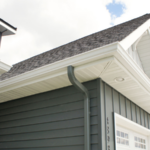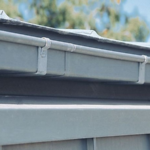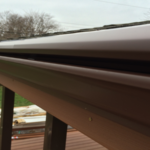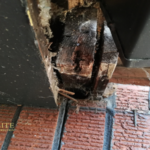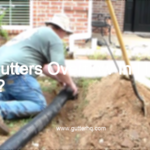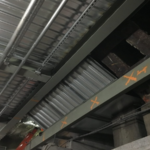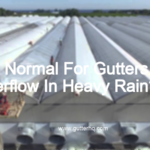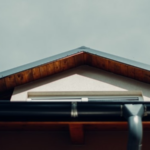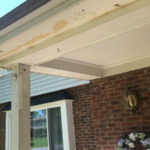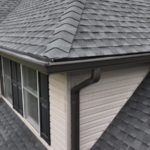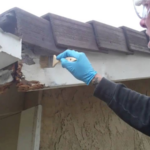Yes, heavy rain can cause gutters to overflow. When gutters overflow, the water can cause damage to the foundation of your home, which can lead to serious problems. The best way to prevent this from happening is to make sure that your gutters are clear of debris and are properly pitched so that the water can flow freely through them.
Is it normal for gutters to overflow in heavy rain?
It is quite normal for gutters to overflow during heavy rainfall. This is because the gutters are designed to collect and funnel water away from the home, and when there is a large amount of rainfall, the gutters can become overwhelmed. The overflow is usually harmless and will stop once the rain subsides. However, if the gutters are not cleaned regularly, the overflow can cause water damage to the home.
What causes gutters to overflow?
There are many potential causes of gutters overflowing. One common cause is that the gutters are simply not big enough to handle the amount of water flowing off the roof during a rainstorm. another possibility is that there is debris in the gutters that is blocking the flow of water. leaves, twigs, and acorns can all fall into gutters and cause problems. If the gutters are not cleaned out on a regular basis, this debris can build up and cause the gutters to overflow.
How do I stop my gutters from overflowing water?
- Make sure that your gutters are clean and free of debris. This will allow water to flow freely through them and prevent any blockages.
- Check the downspouts to ensure that they are clear and unobstructed. If water is not able to flow freely through them, it will back up in the gutters and cause them to overflow.
- Inspect your gutters regularly to ensure that they are in good condition and are not leaking. If you find any leaks, repair them immediately to prevent water from overflowing.
Why are my gutters clear but still overflowing?
The most common reason for this is that the gutters are too small for the amount of rainfall that they are receiving. Another possibility is that there is a blockage in the downspout or in the gutters themselves. If the gutters are clear but still overflowing, it is likely that they need to be replaced with a larger size.
Is it normal to have standing water in gutters?
If you have standing water in your gutters, it may be a sign that your gutters are not properly pitched or that there is some sort of blockage preventing the water from draining properly. If you see standing water in your gutters, it’s best to remove it as soon as possible to prevent any further damage.
Is gutter overflow normal?
Gutter overflow is common during periods of heavy rainfall. While your gutters are designed to collect and channel water away from your home, they can only handle so much at a time. When they become overloaded, the water will spill over the sides and can cause flooding and damage to your home.
How do you fix gutters that don’t drain?
If your gutters are overflowing or not draining properly, there are a few things you can do to fix the issue. First, check to see if your gutters are clogged with leaves or other debris. If so, use a garden hose or a pressure washer to remove the debris. If your gutters are still not draining properly, you may need to adjust the pitch of the gutters. This can be done by adding or removing shims from under the gutter hangers. Finally, if your gutters are still not draining properly, you may need to replace the gutters or have them professionally cleaned.
How do you tell if gutters are working properly?
If your home has gutters, it’s important to know how to tell if they are working properly. While most people think of gutters as nothing more than metal or plastic channels that collect rainwater and direct it away from their homes, they actually perform a vital function in protecting your home’s foundation.
If gutters are not working properly, they can allow water to seep into your home’s foundation, which can lead to serious damage. In addition, if gutters are not cleaned regularly, they can become clogged with leaves and other debris, which can also cause problems.
- Look for leaks: One of the most obvious signs that your gutters are not working properly is the presence of leaks. If you see water spilling out of your gutters or running down the sides of your home, it’s a good indication that your gutters are not doing their job.
- Look for cracks or holes: Another sign that your gutters are not working properly is the presence of cracks or holes. If you see any cracks or holes in your gutters, it’s a good idea to have them repaired as soon as possible.
How much water can a rain gutter handle?
A rain gutter can handle a lot of water depending on its size and the amount of rainfall. The average rain gutter can handle about 24 inches of rain per hour. Larger rain gutters can handle more water, but they may need to be replaced more often.
Final Word
Yes, heavy rain can cause gutters to overflow. This can lead to water damage to your home and foundation. To prevent this, make sure to regularly clean your gutters and downspouts.
